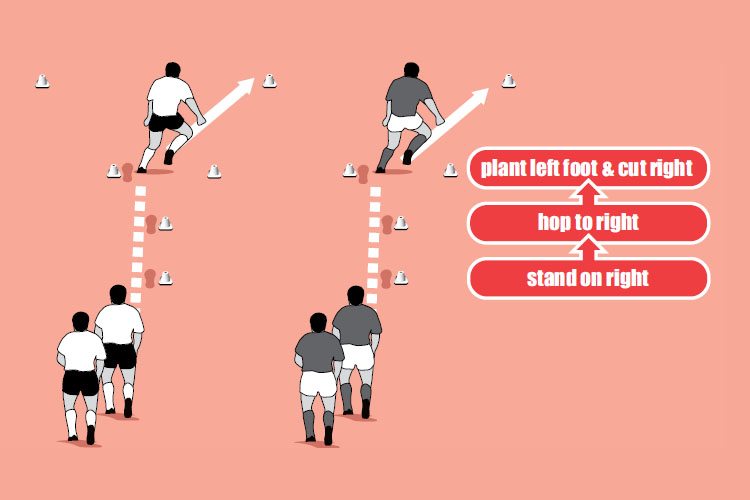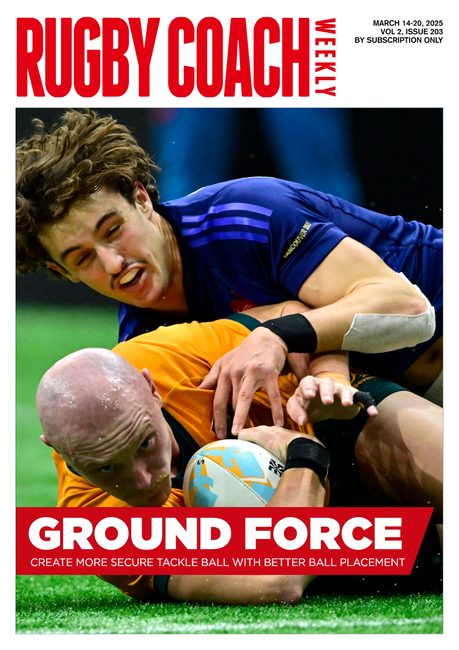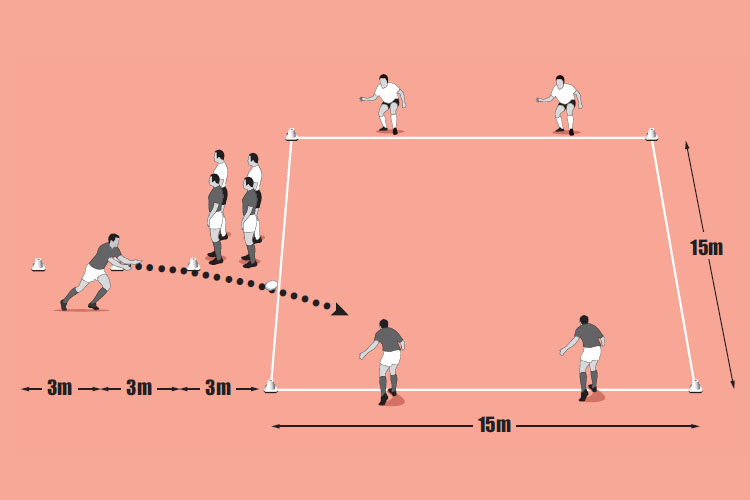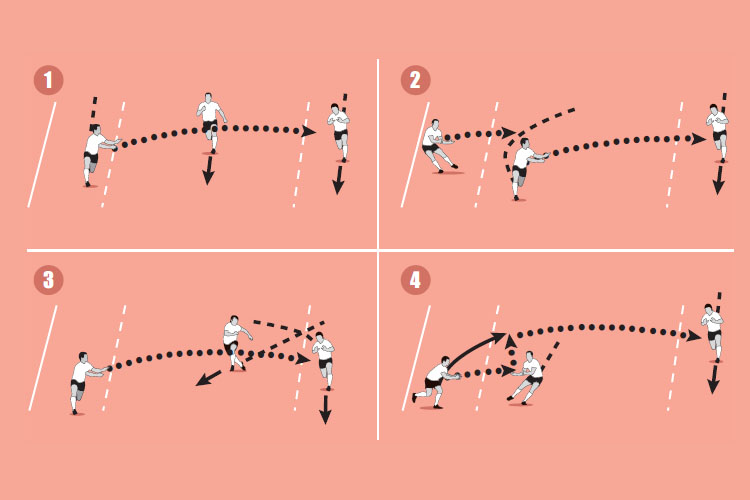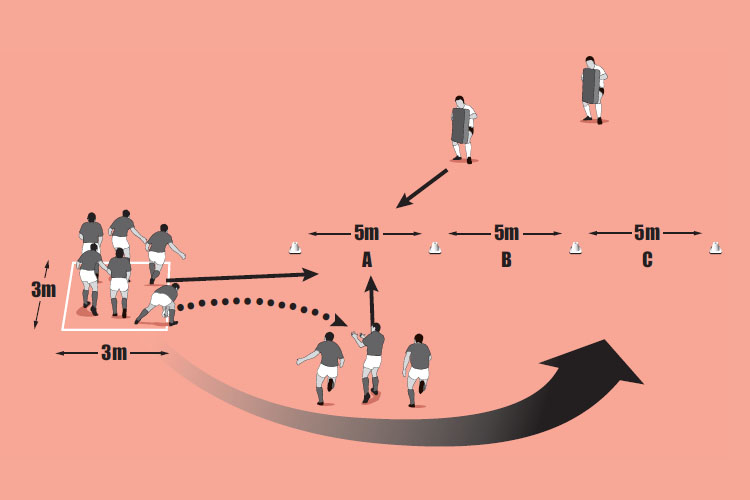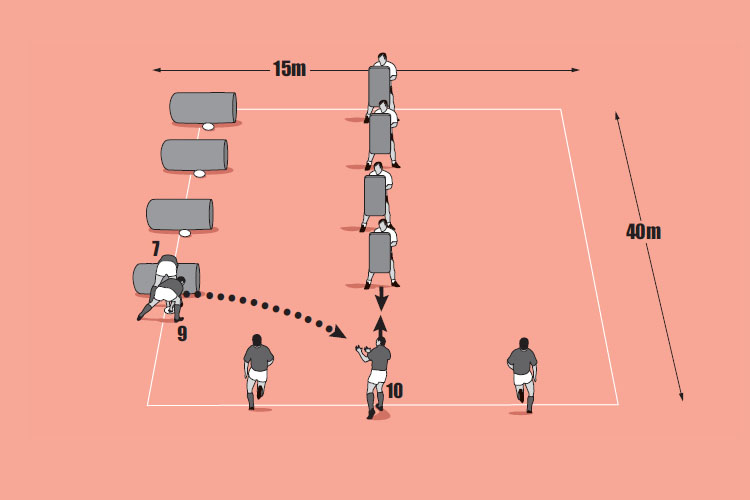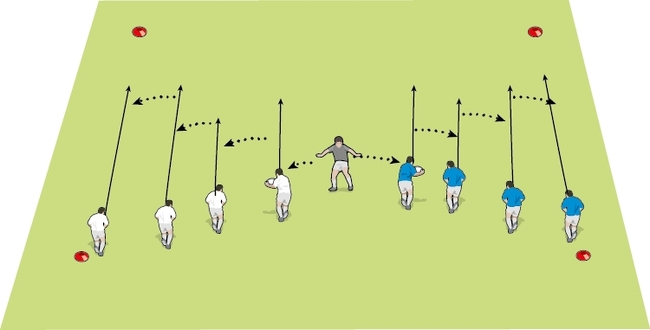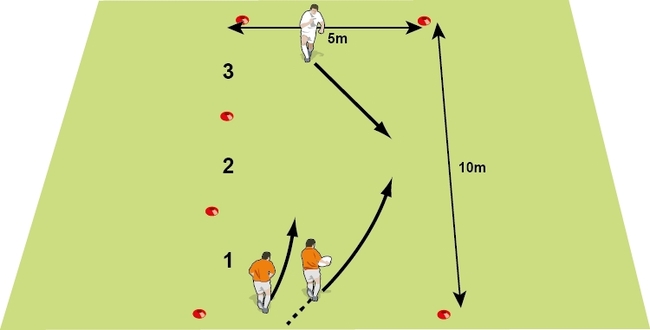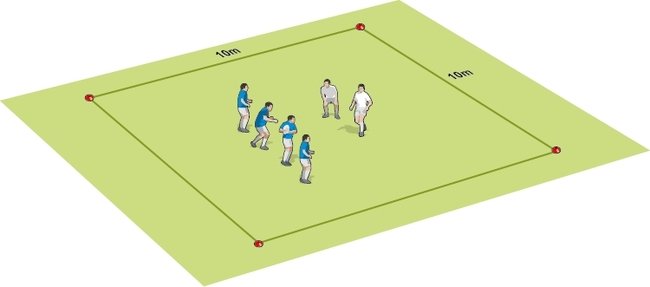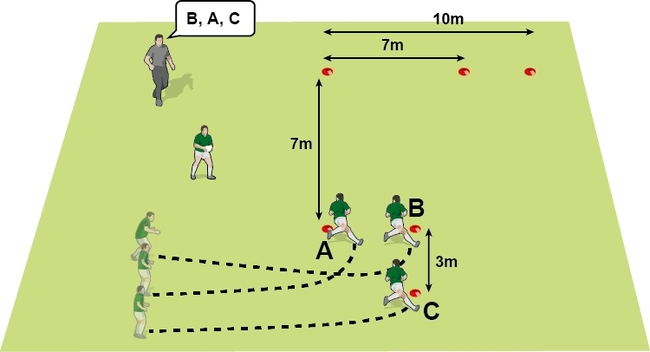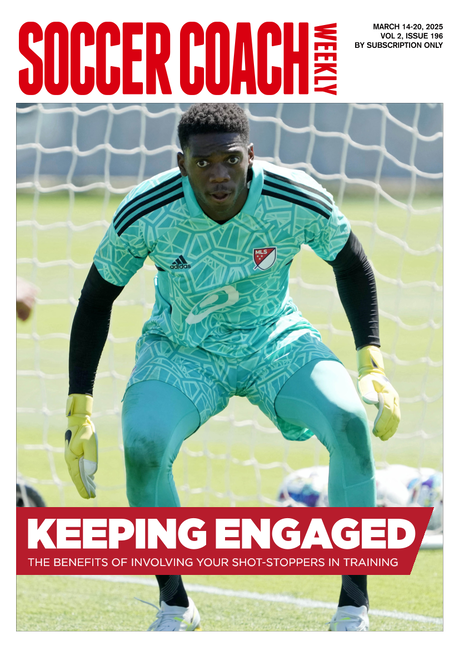Skip step
Help your players master this basic playground skill, to develop devastating attacking footwork and terrific tackle technique. The skip step allows a player to check their momentum quickly, whilst maintaining balance, and enables rapid changes of direction.
Warm up time: 5-7
Session time: 10-15
Development time: 10-15
Game time: 10-15
Warm down time: 5-7
What to think about
How high should the skip step be? The players should step as they would in a normal running action. You should not have your players practising this step over hurdles, because these lift the knee too high. The skip step probably has a shorter stride than a regular step. Two hands on the ball or one hand? The ball in two hands can mean better balance and ease of pass. A one-handed carry with a skip step can work well because the defender will focus on the ball and may be pulled slightly to the ball side, allowing perhaps a split second of room for the ball carrier. Of course the ball carrier can also fend off more easily.set-up
- The key to an effective skip step is maintaining balance. You can do this by dropping your centre of gravity and widening your base.
- Keep the ball in two hands if possible or transfer it to the outside arm to fend.
- Try not to run straight at the defender. The more committed he is to moving in one direction the more effective a skip step and “cut” in the opposite direction will be.
What you get your players to do
Coach the last phase of the skip step first. A player stands on his right foot next to the first cone, he hops, landing on the same foot next to second cone. He immediately plants his left foot next to the third cone and “cuts” (accelerates hard to his right). Once players have mastered this last phase they can progress to walking then jogging into the skip step.Development
Position one player as a defender at head of the Y. As attacker runs towards him the defender holds up his right or left arm. The attacker does a skip step and cuts for the opposite side. Finally, create a one-on-one with the defender, as set up in the middle picture.Related Files
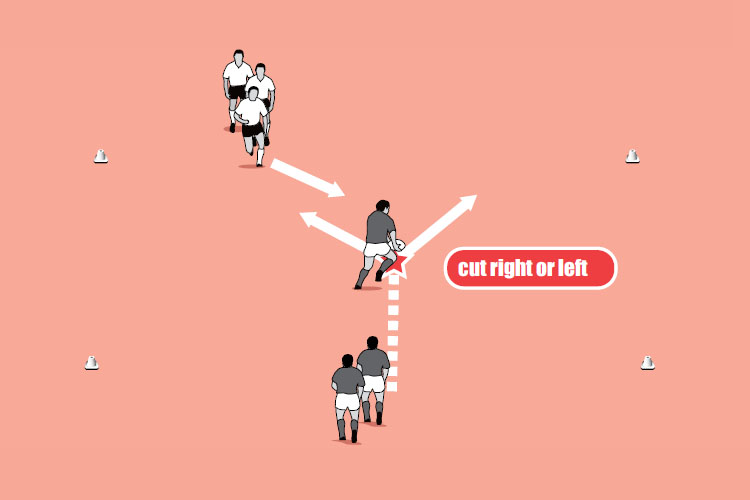
Game situation
Split into groups of four, with two attackers and two defenders. Attacker one runs towards defender one and does a skip step and lateral cut, he can now pass to the other attacker or skip step between defenders.
The second attacker can:
- Wait to receive a pass and do a skip step to beat the defender.
- Do a skip step and cut before he receives the ball to take a short ball inside the defender, or to take a long ball outside the defender.
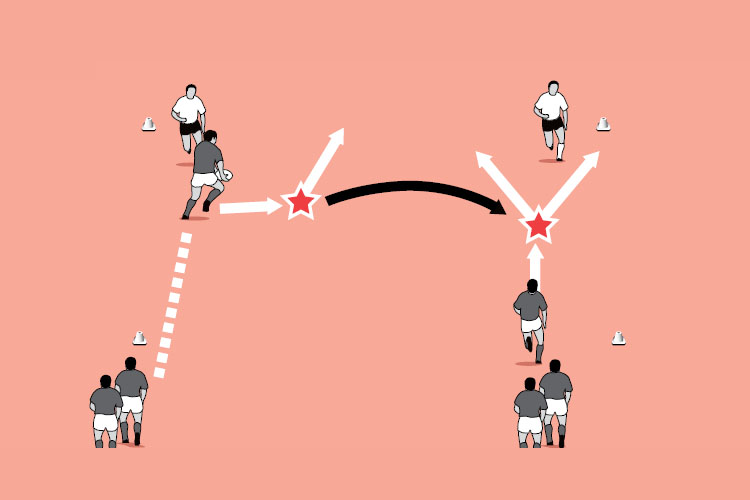
What to call out
- “Look at defender”
- “Stay low”
- “Cut hard”
- “First three steps”
Newsletter Sign Up
Coaches Testimonials

Gerald Kearney, Downtown Las Vegas Soccer Club

Paul Butler, Florida, USA

Rick Shields, Springboro, USA

Tony Green, Pierrefonds Titans, Quebec, Canada
Subscribe Today
Be a more effective, more successful rugby coach
In a recent survey 89% of subscribers said Rugby Coach Weekly makes them more confident, 91% said Rugby Coach Weekly makes them a more effective coach and 93% said Rugby Coach Weekly makes them more inspired.
Get Weekly Inspiration
All the latest techniques and approaches
Rugby Coach Weekly offers proven and easy to use rugby drills, coaching sessions, practice plans, small-sided games, warm-ups, training tips and advice.
We've been at the cutting edge of rugby coaching since we launched in 2005, creating resources for the grassroots youth coach, following best practice from around the world and insights from the professional game.
